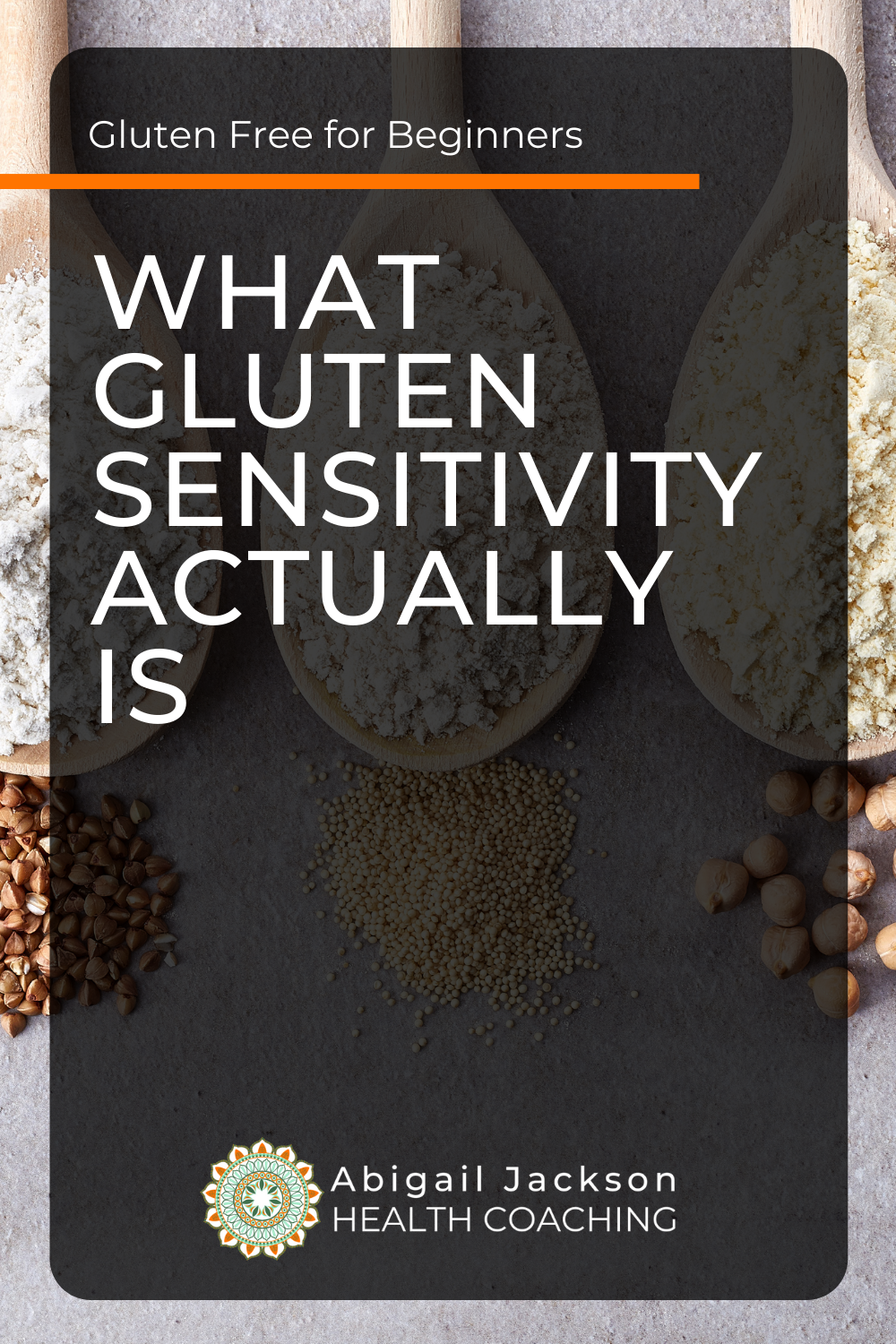I’ve noticed that there’s a lot of controversy over “gluten free” in general society. People are *starting* to realize it’s a thing, but there’s still a LOT of people who dismiss it. Especially if there’s no “official diagnosis”… like people don’t have the ability to understand and evaluate what’s going on in their own body. *super sarcastic eye roll*
But there’s a fast growing number of people who are realizing that something’s going on.
Like my friend Alisha, who realized she needed to be gluten free when her favorite birthday dinner tried to kill her.
Her grandma ALWAYS made this super special dinner for her, every single year of her entire life. And before, she never really paid attention to how it made her body feel, because it was this cool tradition she shared with her grandmother.
But a couple years ago, a family member had started being gluten free and talking about all the symptoms she’d been having and Alisha was beginning to think that maybe she was having trouble with gluten too. She didn’t know for sure what that meant, and she didn’t know how to tell for sure if she “had it,” but she knew that she had been having a lot of these same issues for a long time.
So when she had her grandma’s special birthday dinner (which, true to traditional Southern cooking, was literally dripping in glutened gravy), and she ended up in the bathroom barfing her GUTS out 30 minutes later, she knew something was going on.
But she didn’t really know where to go for help. (She even works in a natural health field and didn’t know where to start!)
Basic Google searches are where most people start… and where most people give up because it’s just so dang confusing.
Without an actual diagnosis from a doctor, the general consensus seems to be that being gluten free is a fad...
...That it’s a “health choice” like being vegan or paleo. (Obviously sometimes people choose to be vegan or paleo for moral/social reasons other than strictly health, but that’s a discussion for another time.)
And joining a “fad” -- no matter how firmly you believe it’s the right choice for you -- carries a certain amount of fear/guilt/shame from other people in your life who don’t understand. And since my friend didn’t really understand either, she wasn’t able to defend her choice and ended up getting REALLY frustrated with her family.
Also, there was always a worry in the back of her mind that they were right and she really was just “jumping on the bandwagon” without knowing what she was doing, and what if she really was just being a drama queen, and was it really worth all this hassle??
See the problem is that there’s too many cooks in the kitchen… everybody has an opinion, but no one knows the recipe: all those Google articles are from every background under the sun and most of them are outdated.
“Being gluten free” is so ambiguous because there’s not yet a clear definition of the condition, medically speaking.
You see, something gets classified as a “condition” or “disease” when there is a clear cluster of symptoms and some kind of repeatedly testable criteria. (Because Western medicine is based on Science, and Science won’t believe that something is real until it can test it repeatedly and get uniform results.)
However, in the past 30ish years, enough people have gone to doctors complaining of negative symptoms connected to gluten that the medical industry has compromised with the public and created a label (because giving something a label usually makes people feel better).
They call it “Non-Celiac Gluten Sensitivity” (NCGS for short).
Since there isn’t a standard cluster of symptoms (other than gastrointestinal distress) and doctors haven’t been able to reliably test for it, they can’t label it as a disease. At this point, the best they can do is differentiate it from something they CAN test for: celiac.
So if you go to a doctor and insist on getting tested for celiac but it comes back negative, they’re going to say you’re “fine.”
But if you know for a fact that gluten gives you problems, you’re probably going to question whether or not this doctor knows his stuff. The doctor may or may not mention “non-celiac gluten sensitivity” (because remember, Science doesn’t believe something is real unless they can test for it). In the minds of most doctors, NCGS is a placebo somebody came up with to make the health nuts feel better about themselves.
If you do get a doctor who will listen to you, the best the doctor can do (for legal reasons) is quietly agree with you that something is going on.
This is why there’s a big hullabaloo over whether “gluten sensitivity” is an actual thing. The medical industry can’t test for it, so they refuse to believe it’s a thing. The public are the ones barfing their guts out when they eat gluten, so they know for a fact IT’S A THING.
So the official standing right now is that Non-Celiac Gluten Sensitivity is a “patient driven diagnosis” (which means that you, the patient, says “I’m having an issue with this thing” and the doctor quietly agrees with you). They make these distinctions for legal reasons because it affects who can sue who and whether their practitioner’s insurance will cover it.
The good news is, IT’S A THING.
This post is getting super long and I already wrote about what actually happens in the body in a different post (click here to read it when you're done with this one >>), but to sum up suuuper quick:
Gluten is a protein which breaks down the cell wall of your small intestine (which is only ONE cell thick).
When your small intestine’s wall is broken down, you have a condition called “leaky gut.”
When your gut is leaky, undigested particles of food escape into your bloodstream.
When your immune system (which patrols the bloodstream like State Troopers) sees those particles out where they’re not supposed to be, your body mounts an “immune response” (the white blood cells attack anything that’s not labeled “part of my body”). This immune activation causes wide-spread, chronic inflammation (“inflammation” = immune system actively attacking things).
You feel sick because you are experiencing the exact same situation internally that happens when you catch a cold or the flu, only in that case your white blood cells are attacking the cold bacteria or the flu virus, and in this case they’re attacking undigested food that’s running rampant through your bloodstream. But the effect on how you feel from the outside is the same.
So to wrap up:
Gluten sensitivity is present in almost everybody, whether they realize it or not.
You may or may not get diagnosed with gluten sensitivity because most doctors don’t yet consider it an actual condition.
If you’ve been tested for celiac and your results were negative, but you are absolutely 100% experiencing negative symptoms from gluten, you may fall into the NCGS category.
People without celiac who are sensitive to gluten have wildly varying symptoms. This means that there’s no hard and fast rule about what you have to experience to be considered “gluten sensitive.”
These wildly varying symptoms seem to fall along a spectrum, from mildly affected to celiac level reactions. Being on the mildly affected end DOES NOT MEAN you are in it for the “fad” or that your struggles are any less valid than those who react instantly.
Being gluten sensitive also doesn't mean you don't have to worry about cross-contamination or can "cheat" by having gluten occasionally and not feel the effects of it. It depends on the level of your sensitivity, but I've met NCGS people who are just as sensitive to gluten as people with celiac.
Be smart, take care of yourself, and listen to your body. 🙂

